Nasser Al-Khelaifi, the president of France's leading football club PSG, asked for a 2 million euro commission to be paid to a player's agent over a transfer, according to leaked documents. Al-Khelaifi, the chairman and CEO of BeIN Sport media group, also asked for 200,000 dollars to be paid to a private Qatari company, Oryx QSI, which is run by his brother.
The revelations – which appear to show a breach of transfer regulations and the law - are contained in confidential documents seen by Mediapart and the British daily newspaper The Guardian, supplemented by documents from Football Leaks obtained by the German weekly news magazine Der Spiegel.
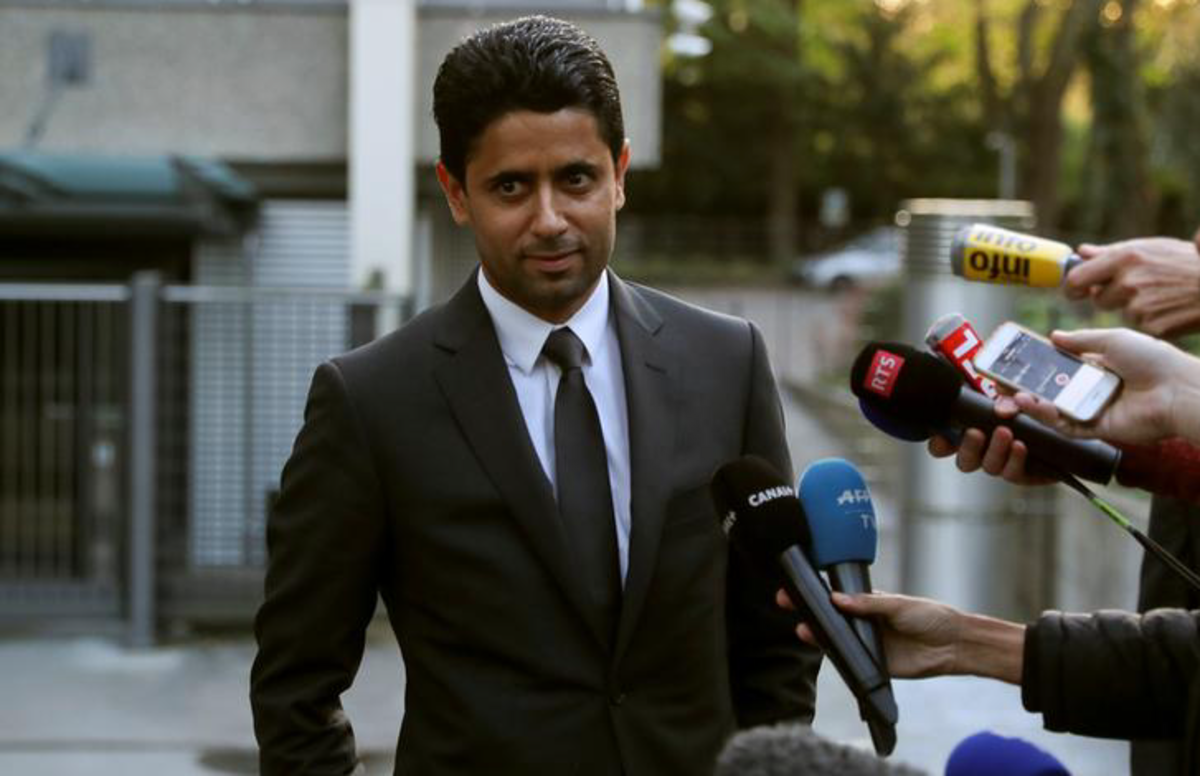
Enlargement : Illustration 1

One of the documents is a letter from Nasser Al-Khelaifi requesting a payment of 2 million euros to the agent of Argentine midfielder Javier Pastore who was transferred from Italian side Palermo to PSG in 2011 in a deal worth 40 million euros plus bonuses. Addressed to the chief of staff to the then crown prince of Qatar Sheikh Tamim bin Hamad Al-Thani – now the Emir – the letter is potentially explosive in two respects. Firstly, it refers to a payment to a player's agent which appears to breach both the rules of the French Football Federation and French law. Secondly, it considerably weakens Nasser Al-Khelaifi's defence in the controversy over how the 2017 athletics World Championships were awarded. Qatar had sought to host them, but eventually had to settle for 2019, with the 2017 games handed to London.
Three months after the request for payment to Pastore's agent, the company Oryx QSI paid 3.5 million dollars to a company belonging to Papa Massata Diack, the son of Lamine Diack, the Senegalese former head of the International Association of Athletics Federations (IAAF), a month before the vote to fix where the 2017 championships would be held. As Mediapart and The Guardian have already revealed, a confidential email shows that the payment was negotiated directly by Tamim Al-Thani's chief of staff.
The French investigating judge Renaud van Ruymbeke placed Nasser Al-Khelaifi under formal investigation at the end of May 2019 for alleged “active corruption” in relation to this 3.5 million dollar payment. The PSG, who denies any wrongdoing, told the judge that Oryx QSI, in which he was a shareholder only between 2013 to 2016 and not in 2011, was a “catering” firm for sporting and other events, which was set up and run by his brother Khalid.
“Khalid Al-Khelaifi … is the company's managing director and he is the only person who is authorised to sign … I did not have the signature – I could not order any expenditure,” he told Judge Renaud van Ruymbeke when he was first questioned in March this year.
However, the confidential letter revealed here by Mediapart and The Guardian shows precisely the opposite: it is signed personally by Nasser Al-Khelaifi on behalf of Oryx QSI. This would suggest the PSG president gave inaccurate information to Judge Renaud van Ruymbek when being questioned in March.
Mediapart understands that when he was questioned a second time, on June 11th this year by judges van Ruymbeke and Bénédicte de Perthuis, the PSG boss refused to answer all questions, including those relating to the company Ooryx QSI. He apparently said he had nothing to add to the written statement handed to the judges by his lawyer Francis Szpiner at the end of May.

Enlargement : Illustration 2
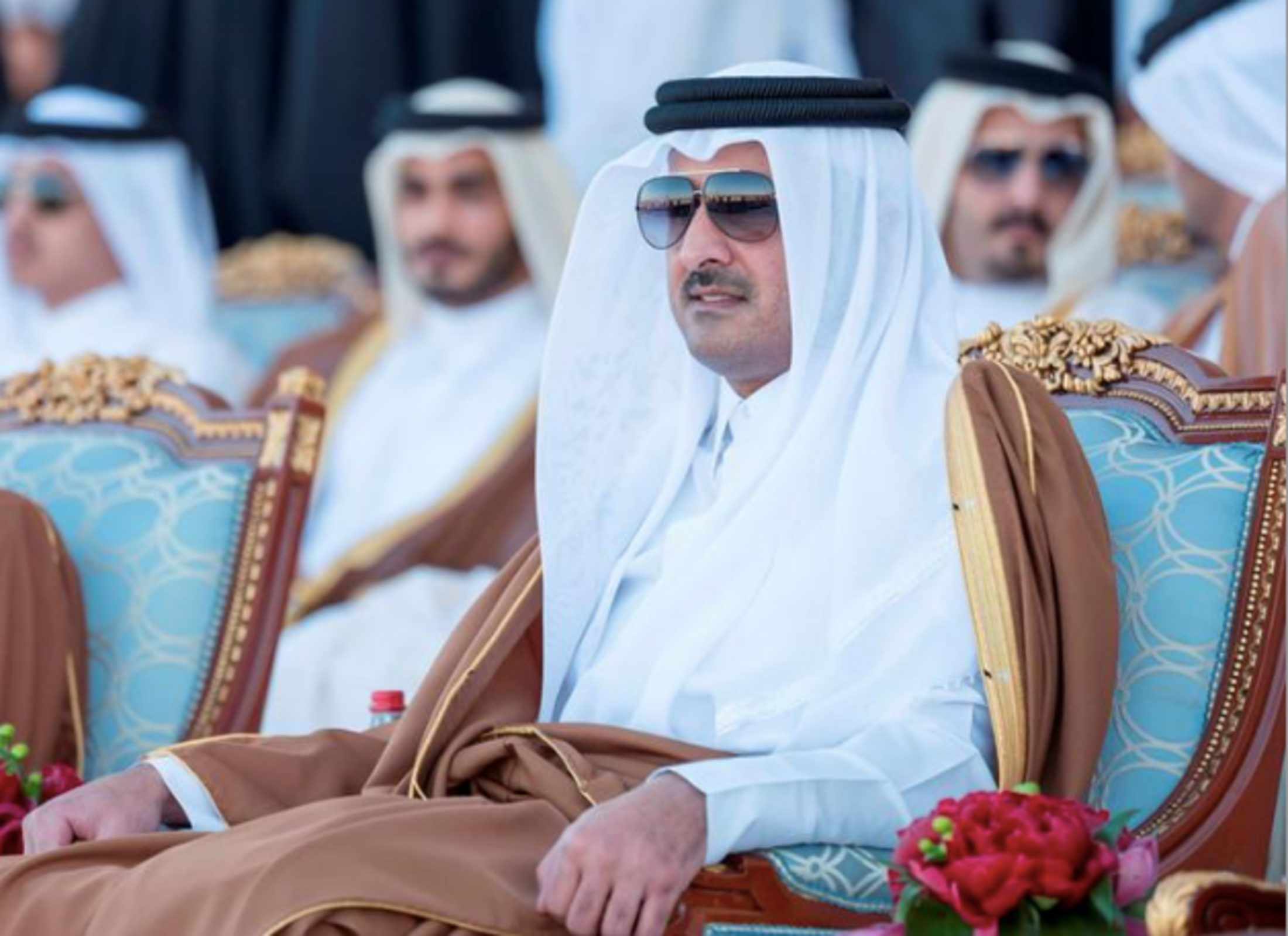
Nasser Al-Khelaifi also declined to reply to questions from Mediapart and The Guardian. Al-Khelaifi’s French and English lawyers initially replied that the states leading the blockade of Qatar – who include Saudi Arabia and the UAE – had spread “a huge amount of misleading information and fabricated documentation purportedly referring to the State of Qatar and the activities of various of its citizens”.
They added: “In these circumstances … our client cannot admit either the authenticity of the material you have described but refused to provide … or the various conclusions you seek to draw from this.” The lawyers were then shown the full text of the letter, and there was no subsequent response.
Then, on the evening of Monday July 15th, after this article was published, one of Nasser Al-Khelaifi's lawyers informed Mediapart – just before announcing it in the sports newspaper L'Équipe – that he was intending to lodge a formal complaint against Mediapart for forgery and use of false instruments, believing that the letter this website published “is a forgery”. Mediapart is convinced of the document's authenticity and notes that Nasser Al-Khelaifi had not denied its contents before publication.
The Emir of Qatar and his chief of staff also declined to comment.
The story goes back to the summer of 2011. At the time Nasser Al-Khelaifi had a lot on his plate. On top of his duties at Al-Jazeera Sports (now BeIN Sports) he had just been named president of the Qatar Sports Investment (QSI) sovereign fund and of PSG, whose purchase by QSI he had just negotiated.
On June 29th 2011 Nasser Al-Khelaifi sent a confidential email to a Hotmail account that was set up using a pseudonym. Mediapart has revealed that this email account was used by Sheikh Khalid bin Khalifa Al-Thani, chief of staff to Tamim al-Thani. Tamim al-Thani, who became Emir in 2013, was crown prince at the time and was driving the emirate's ambitious policy of increasing its global influence via sport, a strategy that has since been tarnished by a number of allegations of corruption (see here).
Attached to the email was a typed letter on Oryx QSI headed notepaper which is signed by Nasser Al-Khelaifi as president of the QSI sovereign fund. It sets out the payments from the Qatari state which must be “approved by His Highness the Crown Prince” to fund the PSG deal: 76 million euros that had to be paid to the club owners Colony the next day at the signing of the purchase deal, and a further 131 million euros to buy some players and finance the club's first season.
“We therefore request that Your Excellency accepts these payments and transfers the said amounts” which was 207 million euros paid in several payments from QSI's account at the Paris branch of the Qatar National Bank. Twenty-four hours later, Qatar had bought PSG.
“In the summer of 2011 I was 100% concentrated on the purchase of PSG whose competitive season was starting in August,” Nasser Al-Khelaifi told the French judge in March. “We didn't have enough time to prepare the club because we had to hire executives, a high-level director of sport, a coach and new players. We had a huge project.”
However, on July 3rd, three days after the PSG purchase, Nasser Al-Khelaifi committed in writing, in his capacity as head of BeIN Sport, to buy the IAAF television rights to help Qatar win the right to host the world athletics championsips (read Mediapart's investigation here).
It was following this commitment that Oryx QSI, a company officially run by his brother, negotiated the purchase of these rights. The aim was to resell some of these TV rights to BeIN – on the condition that Qatar would host the 2017 world championships. This was accompanied by an immediate payment of 3.5 million dollars to the son of the then president of the IAAF as part of the “campaign” over the bid.

Enlargement : Illustration 3
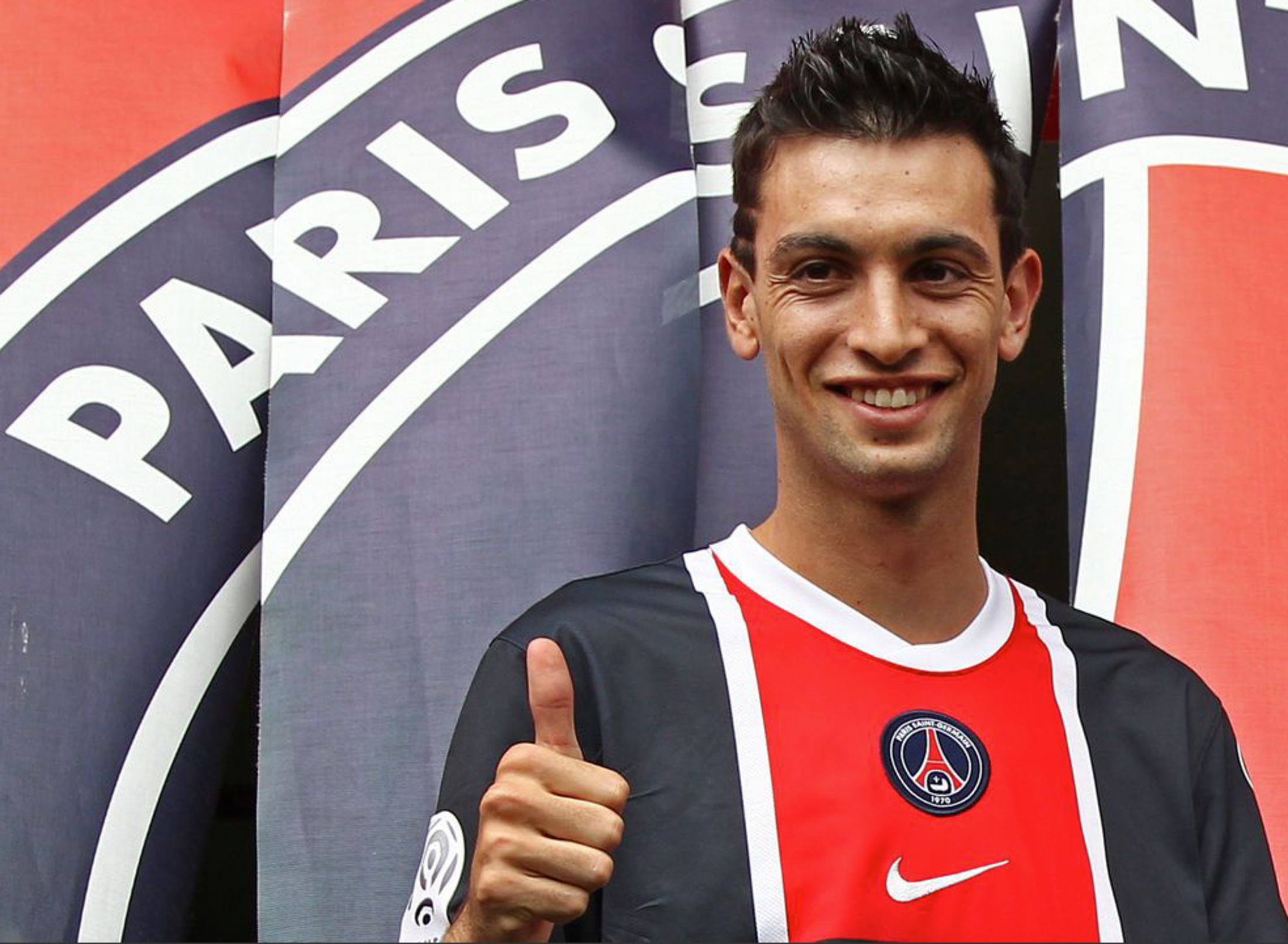
Even though BeIN – of which he was president - was linked to the deal, Nasser Al-Khelaifi has insisted he was not involved because the purchase of PSG was taking up all his time. “By way of comparison [with the 3.5 million dollar payment] the first signing that I made was that of Pastore, a player whose transfer cost 42 million euros,” the PSG boss told the judge in March. At the time the attacking midfielder was the the most expensive player ever bought by a French club.
However, the signing of Pastore appears to have had a more murky side too. The Argentinian signed for PSG on August 5th 2011. On August 28th Nasser Al-Khelaifi again wrote from his professional email account to the Hotmail account used by the crown prince's chief of staff, sending him an attached document.
The '2 million euro payment to a player's agent'
The attached document was a letter typed in Arabic on Oryx QSI headed notepaper (see document below). It is signed in the name of the company by “Nasser Ghanem Al-Khelaifi” written in type and also signed by hand. The letter is addressed to “His Excellency Sheikh Khalid bin Khalifa Al Thani, Chief of Staff of His Highness the Crown Prince”. In the subject line are the words: “Commission of the agent in charge of the player Javier Pastore and expenses of the company Oryx QSI.”

Enlargement : Illustration 4

Nasser Al-Khelaifi writes that the content of his letter is “based on verbal instructions given by His Highness Sheikh Tamim bin Hamad Al Thani, heir to the throne, may God protect and conserve him, regarding the payment of the commission due to the agent in charge of the player Javier Pastore amounting to 2 million euros in exchange for his transfer from the Italian club of Palermo to Paris Saint Germain, in addition to the expenses of Oryx QSI, amounting to US $200,000.”
The letter then asks that the two payments are made to Oryx QSI's accounts at the airport branch of the Qatar Islamic Bank, giving the account numbers as 100224835 for the euro account and 100224834 for the dollar account. Khelaifi concludes the letter: “We thank you for your help and cooperation with us. Please accept, Your Excellency, the expression of my respect.”
In summary, the letter described an operation ordered by the person who is the current Emir which, via Nasser Al-Khelaifi and the company Oryx QSI, sought to pay an irregular commission to a player's agent, financed by the state of Qatar.
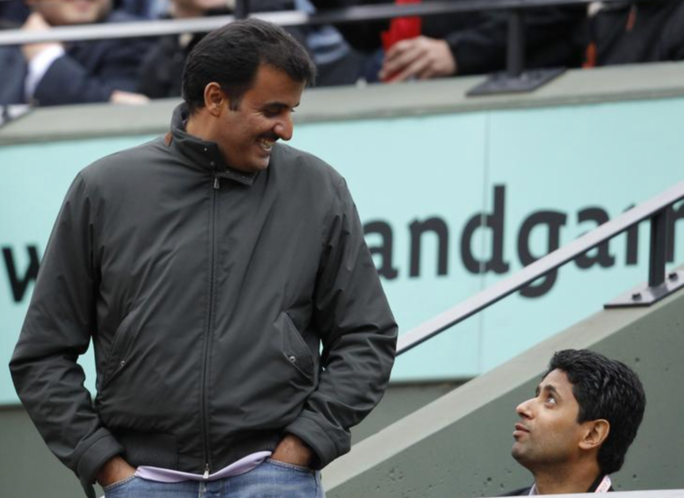
Enlargement : Illustration 5

The letter also raise the question of potential personal gain. Did Oryx QSI really have 200,000 dollars of expenses in relation to Javier Pastore's transfer? Was this payment not really payment to Nasser Al-Khelaifi and/or his brothers Khalid and Mohamed, who owned the company's capital at the time?
In professional football it is strictly forbidden for a club president to personally pay a player's agent. The French Football Federation (FFF) and the French professional league the Ligue de Football Professionnel (LFP) both confirmed to Mediapart that such a payment – if made as set out in the letter – would not just breach FFF regulations but the law. Article L.222-17 of the sports code in France stipulates that only players and clubs are authorised to pay an agent.

Javier Pastore left PSG in June 2018. His agent is the Argentine Marcelo Simonian, whose tax affairs in relation to sponsorship income from Javier Pastore Mediapart described in December 2016, during Football Leaks' first 'season' (read here). France's financial prosecutions unit the Parquet National Financier (PNF) later opened a preliminary investigation for alleged “laundering of the proceeds of aggravated tax fraud”, which is still ongoing.
Marcelo Simonian had no right to be paid in relation to Pastore's transfer from Palermo to PSG in 2011 because both French and international rules at the time forbade an agent from representing several parties in the same transaction. French rules still forbid such this practice though the sport's international body FIFA has allowed it since 2015.
At the time Simonian had a 50% economic stake in Pastore, so he was entitled to half the 40 million euro transfer fee paid by PSG (though Palermo refused to pay all the money to the agent and litigation is still ongoing in the case). In 2011 Simonian was also both Palermo's agent and Pastore's agent, and Palermo's chairman was sanctioned by the Italian football federation for having allowed this double representation.
In the employment contract between Pastore and PSG, which was sent to the LFP for approval, everything at first glance conformed to the rules. The document, which has been revealed by Football Leaks, states that neither the club nor the player used an agent. As Simonian did not have the right to represent the player, he paid a lawyer, Emmanuel Moulin, to help Pastore.
Did the deal in the confidential email revealed by Mediapart aim to get around the fact that PSG was not allowed to pay Simonian, by paying him 2 million euros in Qatari state money via a set-up discreetly owned by Nasser Al-Khelaifi?
When contacted by Mediapart Marcelo Simonian formally denied having received any money, either from Oryx QSI or PSG. “Neither me nor Emmanuel Moulin have received any commission on the transfer of Pastore. Zero,” he added. “I could not receive a commission because I was the co-owner of the player.”
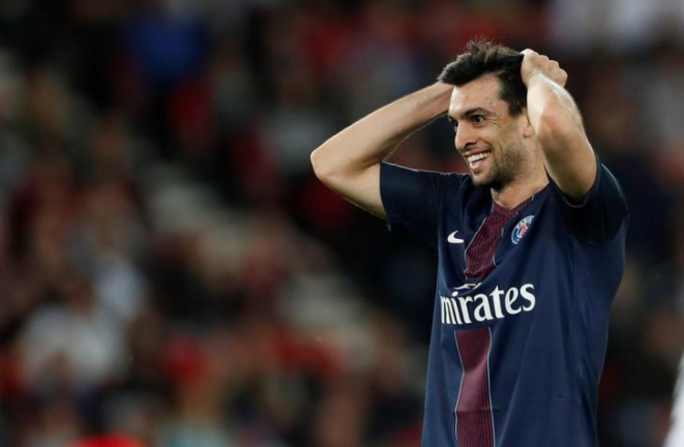
Enlargement : Illustration 7

The Argentinian agent said that he did not know of the company Oryx QSI and that he had not negotiated the Pastore transfer with Nasser Al-Khelaifi – whom he says he knows – but with the club's sporting director Leonardo.
However, confidential documents that have come to light via Football Leaks suggest that the agent did negotiate a commission with PSG. On September 15th 2011, a month after the transfer, a colleague of Marcelo Simonian got in contact with lawyer Emmanuel Moulin about the Pastore deal. He requested the lawyer to contact PSG to ask for the sum the club owed Simonian. The agent himself was informed of this step.
The documents also show that the next day someone from the lawyer's practice informed Simonian and his colleague that Moulin had contacted PSG and that the football club confirmed that the payment had been made.
When confronted with this information, Marcelo Simonian denied it. “Maybe you have misread or badly translated,” he told Mediapart and The Guardian. He said he did “not remember” such an exchange and added that he had “never asked PSG to be paid” in relation to the Pastore deal.
Lawyer Emmanuel Moulin refused to comment on the payment request made to PSG. But he rejected “with the utmost vigour” any suggestion that there had been any wrongdoing or compliance issues regarding Pastore's transfer or in the way it was reported to the French football authorities. Simonian told Mediapart that after this deal Moulin had become Javier Pastore's lawyer in France.
The whole affair, meanwhile, raises issues for PSG boss Nasser Al-Khelaifi. He has told the French investigating judges that he has never carried out any role inside the company Oryx QSI, and that he did not have the authority to sign on its behalf. But in that case why did he sign a letter on behalf of Oryx requesting more than 2 million euros from the chief of staff to the man who is now the Emir of Qatar? Why did he act as a representative of Oryx when at the time he was not a shareholder in it and had no official position with it? He has not responded to these questions.
The Oryx QSI request for a payment to be made in relation to the Pastore transfer deal, followed three months later by a payment of 3.5 million dollars by Oryx QSI to Papa Massata Diack, son of the president of the IAAF, suggests that the true business activities of the company may be far removed from the “catering” firm that Nasser Al-Khelaifi described to the judge in March 2019.
Is Oryx QSI in reality a front company used for moving hidden payments from Qatar to the world of sport? Were the 3.5 million dollars sent to the company of Diack's son also funded secretly by the Qatari state, as was the plan in the Pastore transfer deal, according to the leaked letter?
It is now down to the French justice system to investigate these questions and examine the role of Oryx QSI. Judge Renaud van Ruymbeke retired on June 28th this year so the investigation is now being led by another judge from the panel of judges specialising in financial crimes, Bénédicte de Perthuis, who has already been involved in the case.
-------------------------
If you have information of public interest you would like to pass on to Mediapart for investigation you can contact us at this email address: enquete@mediapart.fr. If you wish to send us documents for our scrutiny via our highly secure platform please go to https://www.frenchleaks.fr/ which is presented in both English and French.
--------------------------
- The French version of this article can be found here.
English version by Michael Streeter


